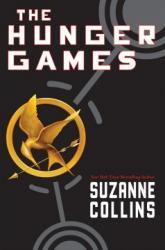
The Hunger Games is about a girl named Katniss who becomes a tribute in the hunger games. The hunger games is a battle royale. A battle royale is a game where two tributes from twelve districts fight for their lives to be the last person standing. The Hunger Games is a punishment because there was a rebellion. While being dragged off to prepare for battle, Katniss must process the thought of life or death.
This was one of the best books I have ever read. There was never a dull moment and it kept me intrigued the whole time. This book is full of adventure and definitely brought out some of my emotions such as, sadness, happiness, and anger. I would recommend this book to anyone looking for a great and fast book to read.
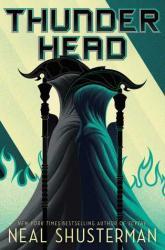
Citra and Rowan have diverged into lawful and lawlessness. Since Citra was selected to become a scythe she began to glean with Scythe Curie meanwhile Rowan went off the grid. Though there had been rumors of a Scythe gleaning other Scythes, who became known as Scythe Lucifer. Fighting the corruption of the Scythedom in their own ways, Citra and Rowan continue to learn what the mortal age world was like.
This book is better than the first book, “Scythe” because the Thunderhead excerpts between chapters add more complexity and depth to the story. Also inmthe first book the perspective switches were a lot less climatic, both main characters were in relatively similar situations. In this book the different perspective adds more suspense to the book, and perspective. The side characters were not static in this book, a lot more about them is reveled in this book. “Thunderhead” also had good foreshadowing that was sometimes a bit too obvious. The main thing this book lacked like the first book of the series was detailed descriptions. It almost makes the book seem more like a movie because it’s all action. Overall though I would recommend it to those who read “Scythe” and want to continue the series since this book is better.
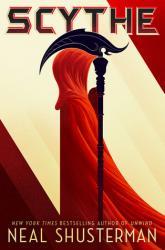
In a world where AI, artificial intelligence, known as the Thunderhead controls the world and has gifted humanity immortality, it gave humans the responsibility of death. Immortality is possible with the nanites embodied in cells to help cells replenish forever. Scythes are the only people that kill or nicely put glean. Citra and Rowan are selected by a scythe to apprentice and the discover the reality of human nature and the burden of death.
I think this is a good book, conceptually it’s definitely a step up from your typical dystopian book but it isn’t my favorite book for other reasons. There is a guy and a girl main character and they have to defy the expectations of society, creating romantic tensions which is pretty typical. The book lacked detailed descriptions which would have enhanced the action by creating more suspense. The biggest reason it is not my favorite is smalldetails that are don’t logically make sense. With the all knowingThunderhead it would make sense that technology would allow teleportation and other advancements. All these little details ultimately make the book only 4 stars out of 5.
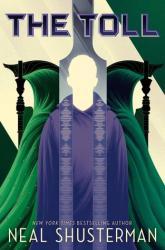
The Great Resonance has occurred and everyone has become unsavory, meaning they can’t communicate with the Thunderhead. That is except for one person, the Toll. Since no one can speak to the Thunderhead no one knows why they have become unsavory leaving the world in confusion. What most people don’t know is Endura the Scythe ring of islands sank when all the systems failed, or were instructed to fail. The leaders of the Scythedom drowned and Citra and Rowan are nowhere to be found.
The other books in the Scythe series had somewhat obvious endings while in “The Toll” I really didn’t know how the series would end which created a nice suspense in the book. Just when I thought things couldn’t get worse or the characters Citra and Rowan things get worse. The excerpts from the Thunderhead and the founding Scythes created a lot of foreshadowing and had each founding Scythe had a unique voice and quirks which was a nice detail. This book still lacks detail of the setting, clothing, and appearance of the characters like the other two books in the series but in this book it especially lacked detailed emotion. There was a Romeo and Juliet like relationship between Citra and Rowan, they were each other’s weakness, and would save the other even it meant sacrificing themselves. However the emotion and reasoning on why they are so in love is unclear. Other than training as apprentices together and kissing once in the first book the author doesn’t really describe why or how they fell in love. This book had
a lot going on at once it was hard to understand how much time had passed or what was happening when. Overall the theme of this series is advancements don’t make humans lose their humanity, no matter how perfect a world there will be those who chose corruption and power, and those who chose to live a simple quiet life.
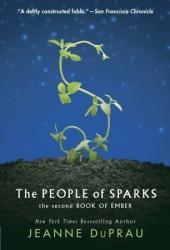
This is the second book of Ember. The book is about the people of Ember emerging to the surface. The people of Ember find the city of Sparks. The Ember people and the Sparks people have quite a bit of conflict. In the end the book resolves itself.
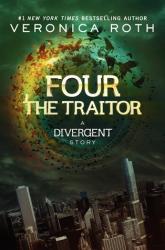
“Four the traitor,” is one of four stories told by the perspective of Tobias Eaton aka Four. This book take place two years after “The Son.” Within that time he’s been keeping busy with spying and keeping in touch with his mother. While spying on Mac and Jeanine he learns of their devious plan to take over Abnegation. All though the book isn’t as detailed and goes though his feelings and adventures like Beatrice is a pretty good book.
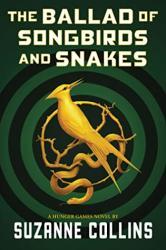
If you're like me, you've been looking forward to the new Hunger Games prequel, The Ballad of Songbirds and Snakes, since its announcement last year. After all the anxious waiting and counting down the days, I found that this new novel, focusing on future villain, Coriolanus Snow, is not as good as the original trilogy but still holds its own and has its place in Collins' universe of Panem.
The Ballad of Songbirds and Snakes is a villain background story. The main character-- for I certainly would not call him a protagonist, even 65 years earlier-- is Coriolanus Snow, future tyrant president of Panem and one of the most despised villains in all of young adult dystopian literature. Here, Snow has an ego, he has big plans, dreams and ambitions for the future of his country. Coriolanus is an orphan after the war that spurred the Hunger Games. The Snow household is broken down and poor, and Coriolanus lives with his grandmother and fellow orphaned cousin, Tigris (yes, that very same Tigris from Mockingjay that Katniss and her squad hid with while in the Capitol. This connection is one of the most interesting in the book, because here, Tigris and Coriolanus are best friends as well as cousins, always looking out for one another and sharing a tight bond. The obvious deterioration of their relationship is never addressed in the book, and I desperately want to know what went sideways between them now.) Coriolanus is a student at the Academy, a high school, and is chosen as one of the 24 best and brightest Capitol students to mentor a tribute in the 10 Hunger Games.
One important thing to note and understand about this book is that the Hunger Games are very very different from where we join them 65 years later. The tributes are abused and starved. The arena is not high-tech or glamorous. The television viewership is low. Most people do not even watch the games at all. All of that changes after this book, I would presume.
Coriolanus, who is hated by the leader of the Academy, Dean Highbottom, is consequentially assigned to mentor District 12 female tribute, Lucy Gray Baird. Lucy Gray is the true protagonist of this novel, and a strange one at that. She is part of a 'Covey', a traveling musical family who got stuck in District 12. She is strange to Coriolanus and the other Capitol children. She is musical, cunning, and not to be underestimated.
One of my wishes for this book is that there would be a romance between Lucy Gray and Coriolanus. There was, and unfortunately, it did not live up to my expectations, which greatly added to my minor issues with this book. Collins greatly crafted a love triangle in the original Hunger Games trilogy, and I was so excited for more of that great romance that made you root for two people to end up together. The romance between Coriolanus and Lucy Gray seemed disjointed, rushed, and absurd. It almost seemed like Coriolanus was using Lucy Gray, which of course is false since he had nothing to gain from loving a poor girl from District 12.
Coriolanus prepares Lucy Gray for the arena while some Hunger Games traditions are introduced-- the betting, mutts and TV host and interviews are all started in this book. The Head Gamemaker at the time is Dr. Gaul, a psychotic and mutation-obsessed woman who takes interest in Coriolanus. Readers should expect to be creeped out and disturbed by Dr. Gaul throughout the novel.
Drama unfolds before the Games even begin, and there are many, many characters and side plots introduced and finished before the Hunger Games even begin. The actual part of the Hunger Games was my favorite part of the novel. Collins truly is a master of writing stories set in the arenas. I will not spoil who wins the 10th Hunger Games, but expect to be surprised by the turn of events right after the Games conclude.
My only other problem with this book is it actually felt like three books instead of one. Like the rest of the series, it is divided into three sections, and each felt like it's own standalone story. The third section Iread very fast. The first was very slow. And the middle was the best, with the arena and Hunger Games.
One of the things about this book that I enjoyed tremendously is that it does not paint Coriolanus as a hero, even back then. He is still cunning and a little evil, especially at the surprising ending. Coriolanus is never written as a good person. Instead, the good people around him are at his disposal.
Another thing to note is the literalness of the title. There are all three-ballads, songbirds, and snakes, in this novel. It is in no way symbolic or metaphorical. There is a lot of music, for Lucy Gray, and to add a lighter tone. I liked the inclusion of all the music, though it was a little strange to have so many songs included in full, with all their lyrics and everything. There are several songs from the original trilogy in this book, The Hanging Tree among them, and I enjoyed the inclusion of those.
The Ballad of Songbirds and Snakes does not feel like a Hunger Games novel. It feels like a companion to Collins' original trilogy, but not directly connected to that world. That being said, it is a very compelling and originally imaginative story, that only suffered from a few disjointed elements. This prequel does not quite live up to the original beloved stories of The Hunger Games, but comes very close and presents a new take on Suzanne Collins' world of Panem.
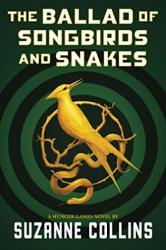
This book is fantastic! The Ballad of Songbirds and Snakes adds a whole new level of depth to the Hunger Games Series main antagonist, Coriolanus Snow, and to Suzanne Collins' dystopian world. This novel shows the journey of Coriolanus Snow from an eighteen year old boy trying to find his place in the world to the ruthless president in the Hunger Games Trilogy. I could not put this book down. It is the perfect addition to a fantastic series. I highly recommend this novel for any teenaged reader or fan of the Hunger Games Series.
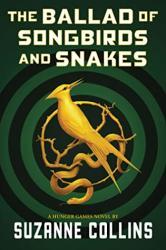
The Ballad of Songbirds and Snakes is the story of Coriolanus Snow and how he becomes who he is in the Hunger Games Trilogy. It is the tenth hunger games and Coriolanus has been given the job as mentoring the girl tribute from district 12. The other mentors are Coriolanus's classmates and they all have the chance to win a spot at the university, something that Snow has wanted for years. This book follows Coriolanus through the games and after where the reader gets to see why and how Coriolanus Snow becomes the president that we all love to hate. I thought this book was fantastic. Collins does a great job connecting this book to the trilogy, which is why I suggest rereading the other books before you start this one because there is little things that could go unnoticed if it has been awhile. It gave a new perspective on the games than the trilogy so it does not feel repetitive and like a rip off version of the first book. If you have read or are about to read the Hunger Games I definitely would give this a try as well.
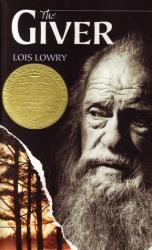
This book is very interesting because of many things. There are very strict rules in the community. The changing of age ceremony is the best part. The main character gets a job nobody thought would happen. This changes his whole perspective of the community. In the end, it ends happily.
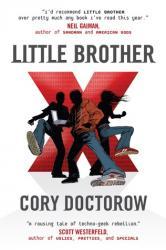
Little Brother is a book about what happens when in an attempt to keep citizens safe after a terror attack the government terrorizes it's own citizens. The government jails and torture teens in an effort to find terrorist. One of the teens they torture is a rebellious computer whiz and hacker name Marcus. Marcus is broken and humiliated while being detained and interrogated by home land security. When he is released he vows to get revenge.
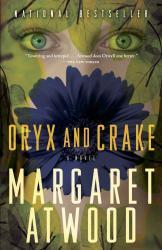
"Oryx and Crake" follows the character Snowman who is seemingly the last surviving human on Earth as he recounts the events that led up to his dystopian present. In this speculative fiction novel, animals are genetically modified to harvest organs for human transplant and spliced together to create fantastical hybrids like “rakunks” that are part racoon and part skunk. In addition, a new human breed is created to be physically flawless and void of normal human characteristics like envy or jealousy. This incredibly thought-provoking book challenges the reader to think about our present, and the choices we make that may lead us down a similar apocalyptic path. For example, it forces us to question how far are we willing to go with genetic modification. Although Atwood deals with serious topics in this book, she addresses them with such humor and over-the-top situations that the book is remarkably enjoyable. Furthermore, the characters of Oryx and Crake are some of my favorite literary characters.
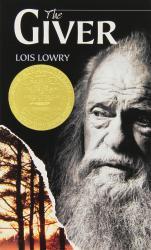
I read this book in my eighth grade L.A. class and surprisingly it stuck even though I thought it was boring and had a hard time comprehending most things. The book does have a PG-13 vibe where it does carry some “sexual content”, but it’s basically about a really strict and emotionless society. A society where everyone was equal which sound really boring. I’m not going to lie that this was the most boring part in the book, learning about how strict it is and how love is forbidden kinda lame. The only interesting parts were when the main character would rebel against the society’s values by expressing his emotions, finding love and most importantly running away so he could give baby Gabriel a less uncompromising and more unconfined life. The most annoying part of the book is the ending not knowing what happens to Jonás and Gabriel. (The movie was better)
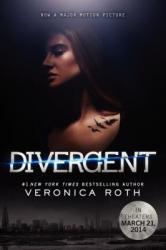
In a city with no contact to the outside world, everyone is divided into factions. In this world Beatrice needs to navigate doing what is right and what she wants while being different. In this book being different is dangerous and deadly, so she must keep it all secret. This book can keep you reading and interested in. This book is easily one of my favorite books because of how well written it is and the amazing plot The book is very easy to visualize and keep up with. I recommend this book to anyone who loves action, romance and suspense.
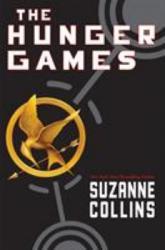
Within a corrupted society where children battle to the death in the annual Hunger Games for entertainment, lives a bold young woman named Katniss Everdeen. Katinis loves her little sister more than life itself. So when her sister PrimRose Everdeen is drawn for the Hunger Games, Katniss does the unheard of and volunteers and tribute in place of her sister. Katniss volunteered without hesitation so when she is sent to the capital along with the other selected person for her district Peeta Mellark she is prepared to fight. She knows that she is going to be sent right into the games and that she has to win it and come out alive to look after her sister. Along the way with the help of her bow and arrow she becomes one of the most unlikely candidates to perform so well in the games, her underdog ness strikes the outside world in hope and in rebellion. This book is by far one of the best that I have ever read, it is so riveting and engaging and has not only action
but romance. I have read every book in the series and I loved every page of it. I would recommend this book to anyone. It is by far one of my top ten favorite books.
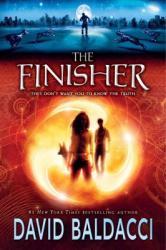
Within the dystopian of Wormwood lives Vega Jane, a strong and very independent woman. When Vega was young, she saw her mother leave the village. No one had ever left Wormwood. Why would anyone leave there wasn’t anything outside of the town? However, Vega knew that the leaders of Wormwood were lying to her. The elders/leaders told her that her mother was dead and that no one survives leaving Wormwood. Vega knew she had to figure out the truth, she was at the end of her wits. She was tired of the constant scrutiny she was under for being a girl, she didn’t have a voice and she wasn’t respected by the men in Wormwood. Vega was really set into action when her friend Quentin Hermes goes missing but leaves clues behind to find her. Determined to uncover the truth to her towns dark past, she follows the clues left behind leading her closer to the truth. This book, while it was not my favorite, had a cool plot and was easy to follow.
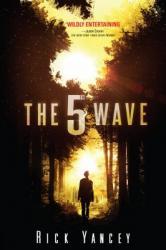
The Fifth Wave by Ricky Yancey is an awesome and thrilling book, that dives into a world in which aliens exist. The human race at the brink of extinction must learn to fight and hide in order to survive the invasion. A young teenager Cassie, has lost her mother and father and now must find a safe place to live and return to her younger brother. But when Cassie finds herself in the midst of a battle with a “silencer”, what they call the aliens, she fears she might not make it. Then a strange and mysterious man from a nearby farm saves Chloe after she was shot by the “silencer” and nurses her back to health. In order to find a way to protect her younger brother and stop the silencer’s invasion Cassie must trust this suspicious farm boy, who looks almost identical to the silencer that shot her. This book has not only has a lot of action and intrigue but has a sweet turn of events within it. It kept me glued to each page and I could not put it down. I would definitely recommend this book, it's one of my favorites!
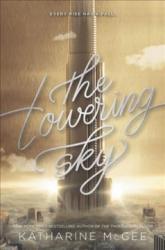
"The Towering Sky" by Katherine McGee tells the story of five teenagers in 2119. Living in a futuristic Manhattan tower in which your floor displays your power, a mystery/romance story is bred. This book was perfectly okay. The writing wasn't half bad, and the characters ,well half-baked, were not unrealistic or arrogant. However, as reading this book, the third and final of a series, without reading the first two, was extremely confusing. At first I had not realized that this book was part of a trilogy, and thought the writing was purposefully confusing. Though I don't know if this book would make more sense after reading the first two, the pacing was quite fast, though the plot moved slow, which created a strange vibe while reading. In general, I would not recommend this book. However, if you have read the first two and liked them, go ahead and give it a go.
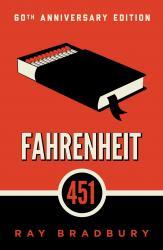
Fahrenheit 451 follows the story of a fireman, Guy Montag, who lives in a dystopian society. His job as a fireman is to locate all books around the city and burn them. Books are banned from any individual and is considered to be an inferior type of entertainment in comparison television, which are more supported by the public. As Montag continues to burn more books throughout his job over time, he deals with a variety of external factors that changes his brainwashed and disillusioned perspective to considering books and their significance to society. Being a firemen in this dystopian society, Montag must deal with a plethora of barriers that are blocking his way before he can truly understand the importance of books and to keep them.
Fahrenheit 451 is an intriguing book that takes a different approach in a dystopian society. Instead of implementing a militaristic and governmental style, Bradbury uses firemen which encapsulates a unique and captivating plot line. Fahrenheit 451 demonstrates a story that everyone can enjoy, especially for those who enjoy reading dystopian novels. Bradbury effectively relates character development of Montag to the series of events that occurs. This coherent relationship that virtually happens side-by-side further produces a sense of immersion for the reader.
Personally, I enjoyed Bradbury's Fahrenheit 451 novel. It is considered to be one of his best, and most iconic books that he has written to date. I highly recommend any average reader to consider reading Fahrenheit 451. The book is not too long, but it will still produce an immense amount of quality and satisfaction in the end.
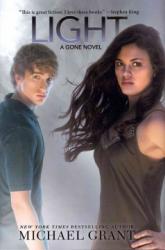
Michael Grant has written a thrilling conclusion to his Gone series. Light is the perfect ending to a phenomenal series. Over the past five books, Sam, Astrid, Edilio, and all the others have survived every obstacle the FAYZ has thrown at them. However, will they be able to survive a final epic battle with the Gaiaphage itself? With suspense around every corner, Light brings the same energy and intensity found in all of the other Gone books. I thoroughly enjoyed Light and highly recommend it to any high school aged reader.
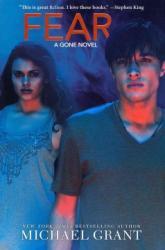
Michael Grant continues the Gone series with another spectacular novel. The kids of Perdido Beach have survived many obstacles thrown at them by the FAYZ, but now they must face their biggest fear yet: complete darkness. Will these kids be able to survive when they can't see what's coming for them? Fear is another hit by Grant. With twists and turns around every corner, Fear is a suspense thriller you won't be able to put down.
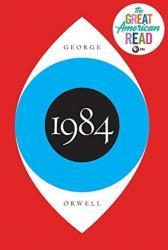
1984 introduces Winston Smith as the primary character. Smith is a middle-aged man that lives within a dystopian society in April of 1984. Being nearly 4 decades after World War II and just a couple of years after the apparent Atomic Wars, Smith lives through the totalitarian state of Oceania, where is activity is consistently surveyed. At this point, Smith attempts to relocate himself from this totalitarian state in order to put him back to normal behavior.
1984 is another novel involving a dystopia, however, it stands out for its strong character development. The premise of the story is heavily shown through the setting, as it demonstrates a controlled and tyrannical lifestyle.
Reviewer Grade: 11
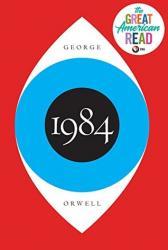
George Orwell depicts a horrific and terrifying alternate reality of 1984.
After years of war and conflict, the world is governed by three totalitarian regimes. The one that our main character, Winston Smith, resides under is ruled by the “party” and its leader “Big Brother”. The narrative follows Winston as he meets a mysterious woman named Julia, and the two begin to secretly rebel.
When I first started reading this book, I was a little bit disappointed. I had such high expectations (I think that was the problem) ,and it just didn’t live up to them. In the beginning, I thought Winston’s character was somewhat flat, and I didn’t feel a lot of sympathy for what he was living through. I thought Julia was unrealistic and a bit obnoxious. But in the second half of the book, my opinions had changed. The book becomes quite disturbing, and it makes you question what is actually real and what is just a fabrication of the party. It’s terrifying to say the least. Despite the fact that I enjoyed parts of this book, I have to rate it 3 stars because I wasn’t engaged in the first half of the narrative.
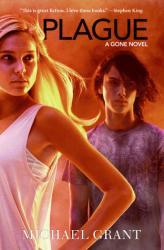
The thrilling Gone series continues with this fourth book, and Grant does not disappoint. This series has been one of my favorites and Plague is no exception. As a highly contagious, fatal illness spreads at an alarming rate and predatory insects terrorize Perdido Beach, morale continues to drop.
However, Sam, Astrid, and even Caine are determined to find a way to survive.
Everyone must make difficult decisions when it comes to saving themselves and those they love. Grant has written another phenomenal dystopian horror with suspense around every corner. I highly recommend this book to all high school aged readers.
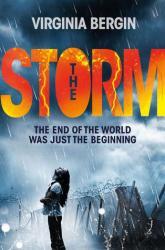
Sequel to "H2O", "The Storm" continues the story of a newly distopian Earth where the rain kills. This book focuses on the bonds of family in crisis, or lack thereof, and the pursuit of survival. Like "H2O" I would call "The Storm" a dystopian thriller with a hint of romance. Not only are all the characters in peril, but they are on their own without any governmental aid.
Truly a fascinating story that will make you uneasy around water.
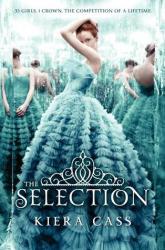
I can honestly say that this book is my favorite book that I have ever read.
The selection is a book about a class system that divides society into groups within a monarchy. However, the extremely handsome Prince Maxon is holding a selection process to find his next princess. Thirty-five girls from all classes are selected to stay in the palace with Maxon for a chance and being his wife. America Singer is from one of the lowest classes, but by staying true to herself and never conforming to the Prince’s wishes she catches his eye. After a spark ignites in and Maxon falls in love with America, he struggles to decide if she will be suitable for the kingdom and fit to rule by his side.
Reviewer Grade:12
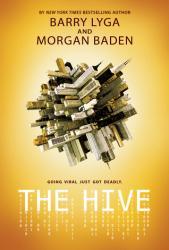
In the near future, an app called BLINQ tracks all social media usage and amalgamates posts from a number of platforms. On BLINQ, you can vote to condemn a person for their social media output – if a person’s condemns to likes ratio gets out of balance, they’ll find themself condemned in real life. For example, a person who ignominiously dumps their partner on Facebook might find themself getting physically dumped in the trash. The punishment is designed to fit the crime. Called the Hive, its something our lead Cassie loved to participate in – until all of a sudden, it wasn’t. After a racy tweet, Cassie finds herself the target of the Hive, but her punishment is more severe than all that have come before it: death.
This was a fast paced, enjoyable dystopia which was a good change of pace from my normal fare of fantasy. I think teens are going to love it. Aside from a few horrendous decisions, our lead Cassie is likable, smart (ostensibly, anyway) and her experiences navigating a new high school will resonate with teens. As Cassie spends most of the book running for her life, it will definitely appeal to thriller fans or those that need their books to be very plot based. I read the book in a day or two even though I had a good idea of how it was going to play out. Little attention is given to the supporting characters, though the book did also present a few chapters from Cassie’s mom’s perspective, which I loved. The authors did a great job portraying a somewhat fraught mother-daughter relationship. There’s though-provoking, if heavy handed, social commentary to be found as well, and I think this book will stick with some readers long after they've turned the last page.
Ultimately, though, the book had what I’m going to call the “Scythe” problem: the premise just wasn’t believable. The Hive was certainly believable – its basically a physical manifestation of the shame that we’re willing to dole out to strangers online (if you’d like a great non-fiction read on the topic, try So You’ve Been Publicly Shamed by Jon Ronson ). Did I for one second think that the first person to get the death penalty would be a teenage girl who tweeted something offensive? I did not. I had trouble getting over that.
TLDR: If you liked The Maze Runner, Divergent or yes, Scythe, you should definitely check out this thrilling dystopia.
Lots of teens will love this one, but it didn’t do it for me – 2 stars. It was ok.
Thanks to Netgalley and Kids Can Press for the eARC which I received in exchange for an unbiased review. The Hive will be released on 03 September but you can put your copy on hold today!
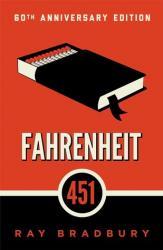
Fahrenheit 451 is a classic book that most people have heard the title of. With a similar style to Aldous Huxley’s “Brave New World”, Fahrenheit 451 takes the reader into a future where books are outlawed and the people of this alternate future are basically mindless robots. The people of this future have an intake of mindless media that even surpasses that of us currently. The main character is a firefighter but different from what we are used to. These firefighters fight with fire, burning houses and books if they are found since they are against the law. But soon after meeting a girl who does not conform to this society’s media consumption, the main character begins to rebel and go against the norm. Fahrenheit 451 is a spooky prediction of what the future will hold and after reading it, I can already see us as a society heading on this path. A truly incredible read, Fahrenheit 451 is a novel that cannot be missed.
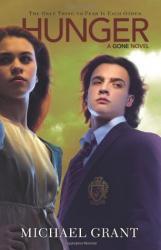
Michael Grant has written another thriller with Hunger. Continuing the story of Gone, everyone is still trapped inside of the FAYZ. However, a new enemy has filled the minds of every person: hunger. As they search for a solution to their hunger, Sam, Astrid, and the others must still resist Caine and the rest of his crew as well as a powerful being known as the Darkness.
Michael Grant keeps you in suspense throughout the entire novel and will leave you hungry for more. I highly recommend this book for any high school aged reader.
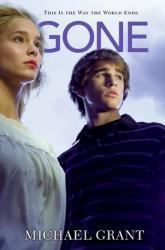
Michael Grant has renewed a classic for the next generation of readers. Gone has a very similar structure to Lord of the Flies but has enhanced the story in many ways. Gone presents added science fiction elements to the story that will draw in many readers and provides conflict that will force you to keep reading. I thoroughly enjoyed this book. However, some readers may find some elements of the story slightly disturbing. Therefore, I recommend this book for high school aged readers and up.